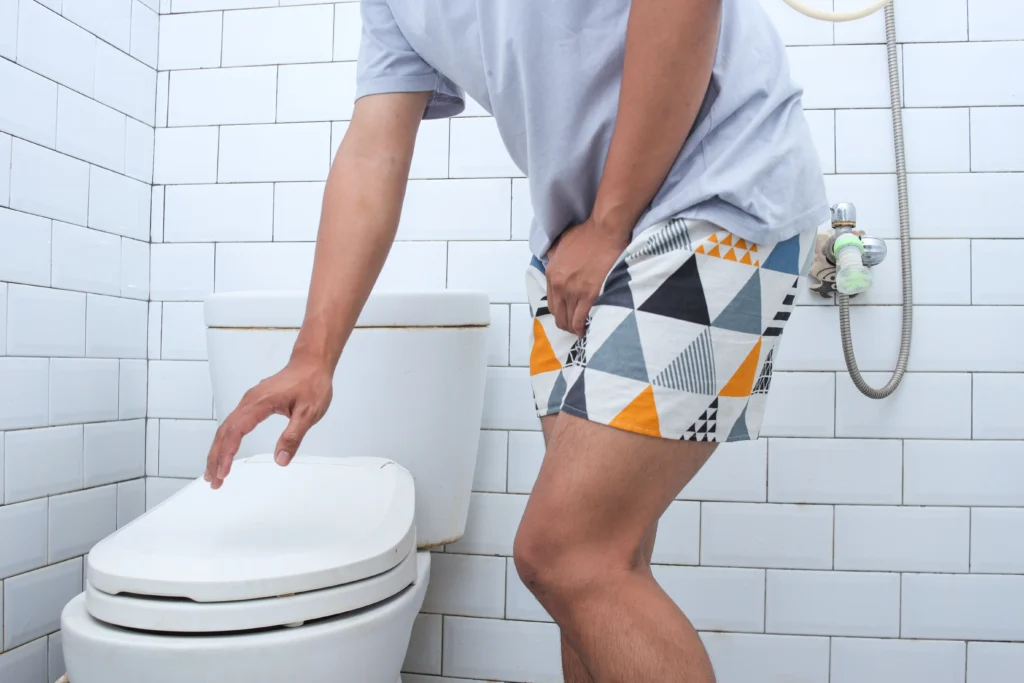Hemorrhoids are swollen blood vessels in the rectum and anus. They can be inside the rectum (internal) or under the skin around the anus (external). These veins swell when there is too much pressure in the area. As a result, they may cause mild irritation or severe pain. Additionally, they are one of the most common reasons for rectal bleeding.
Even though it is often minor, they can still cause a lot of discomfort and affect daily life.
It is very common. In fact, up to 75% of adults may get them at some point. The risk increases with age. As a result, people over 50 are most likely to be affected.

It can cause several uncomfortable symptoms.
Yes, mild cases can go away without treatment. Simple changes, like eating more fiber and not straining, often help. However, if symptoms are severe or don’t go away, you may need medical care.
To prevent it, eat foods high in fiber. These include fruits, vegetables, whole grains, and beans. Also, drink plenty of water for your digestive system to work better.
No, it is not a sign of colorectal cancer. But rectal bleeding can be a symptom of other serious problems. So, always see a doctor to find out what’s causing the bleeding.
To stop it from coming back, eat more fiber, drink lots of water, and exercise regularly. Also, avoid sitting too long or straining during bowel movements.
Internal hemorrhoids are inside the rectum. They usually don’t hurt. External hemorrhoids are under the skin around the anus. These can be painful, especially if a blood clot forms.
Several things can lead to hemorrhoids:
Common signs include:
However, these symptoms can also be caused by other problems. So, it’s best to talk to your doctor for the right diagnosis.